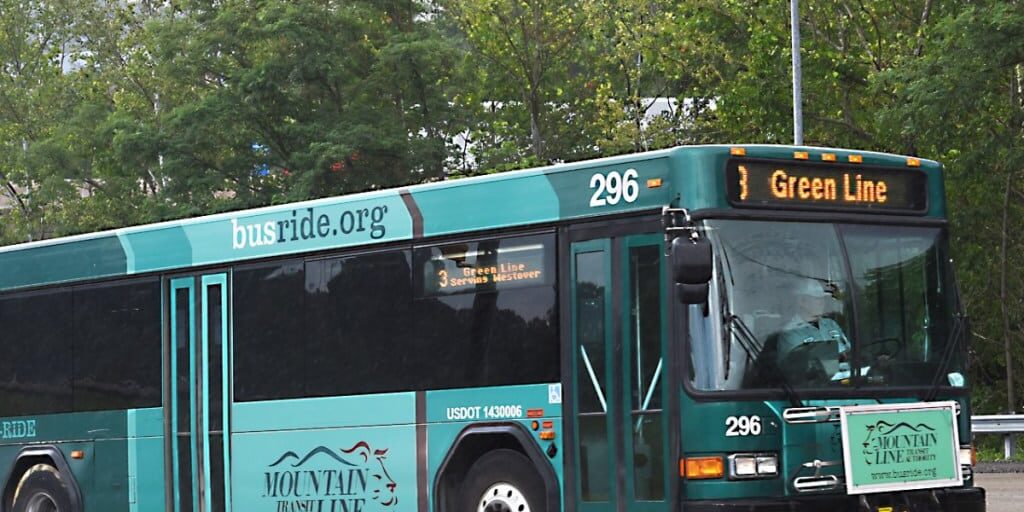MORGANTOWN, W.Va. –– The Mountain Line Transit Authority (MLTA) propane testing program is showing increased efficiencies and fewer emissions, according to President and CEO Maria Smith.
On WAJR’s “Talk of the Town,” Smith said propane was selected because of the high cost to establish an electrical infrastructure to support the buses. She said they would have to increase the electrical feed into the building, install charging stations, and have the possibility of a contingency fleet to run routes if a severe storm hit and they had to go for an extended period without electricity.
“The cost of the batteries on the buses is the majority of the cost, and they only have a six-year life span,” Smith said. “So, we’d be looking at replacing the most expensive part of the vehicle halfway through its useful life.”
The MLTA program uses a Ford light-duty platform with a 23-passenger capacity that is designed to burn gas and have a propane conversion installed by Roush Clean Tech. There are four on the road now, and a fifth will be received in the fall of 2025.
“These are considered light-duty vehicles,” Smith said. “These are Ford F-450s, and we currently have four of them, and the fifth should be coming in the fall.”
Riders, drivers, and mechanics said the buses are not as loud and produce far fewer emissions than their diesel counterparts. In the propane application, the engines release far fewer dangerous emissions like benzene, sulfur dioxide, and hydrocarbons, among many others.
“They produce 60 percent less carbon monoxide than gasoline does, they produce 21 percent less carbon dioxide, and they produce 20 percent less nitrogen oxide,” Smith said.
Smith said propane burns much hotter in the combustion cycle than a diesel or gas engine. The mechanics tell Smith the vehicles that burn propane are much cleaner as well.
“It does burn a good bit hotter, which is part of the conversion of the vehicle to be able to handle those temperatures,” Smith said. “But the fuel burns a lot cleaner, and wear and tear is a lot less on the parts and pieces.”
Smith said the vehicles in the test have a seven-year, or 150,000-mile, expected lifespan. She plans to continue the testing program through the life of the vehicles or when enough data is collected to justify the purchase of additional propane buses.
“With the savings and the great benefits for the environment, public transportation is already a “green way to go,” Smith said. “But this is another step in that direction, and it is great for our community.”



